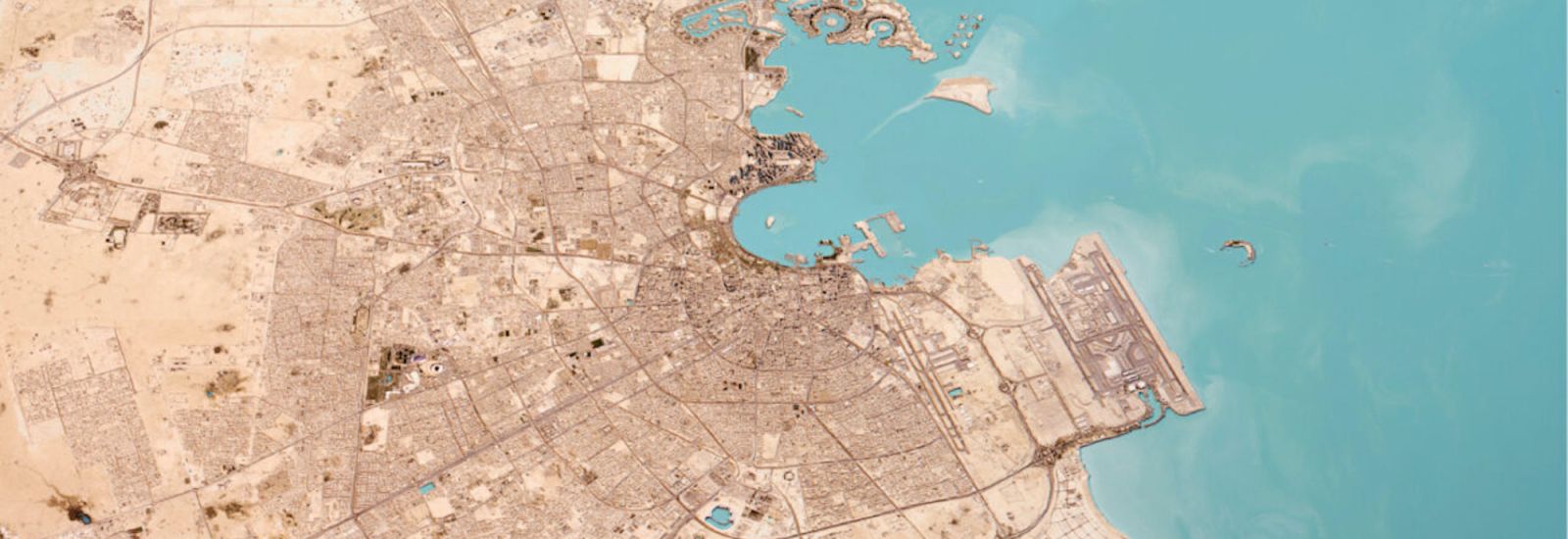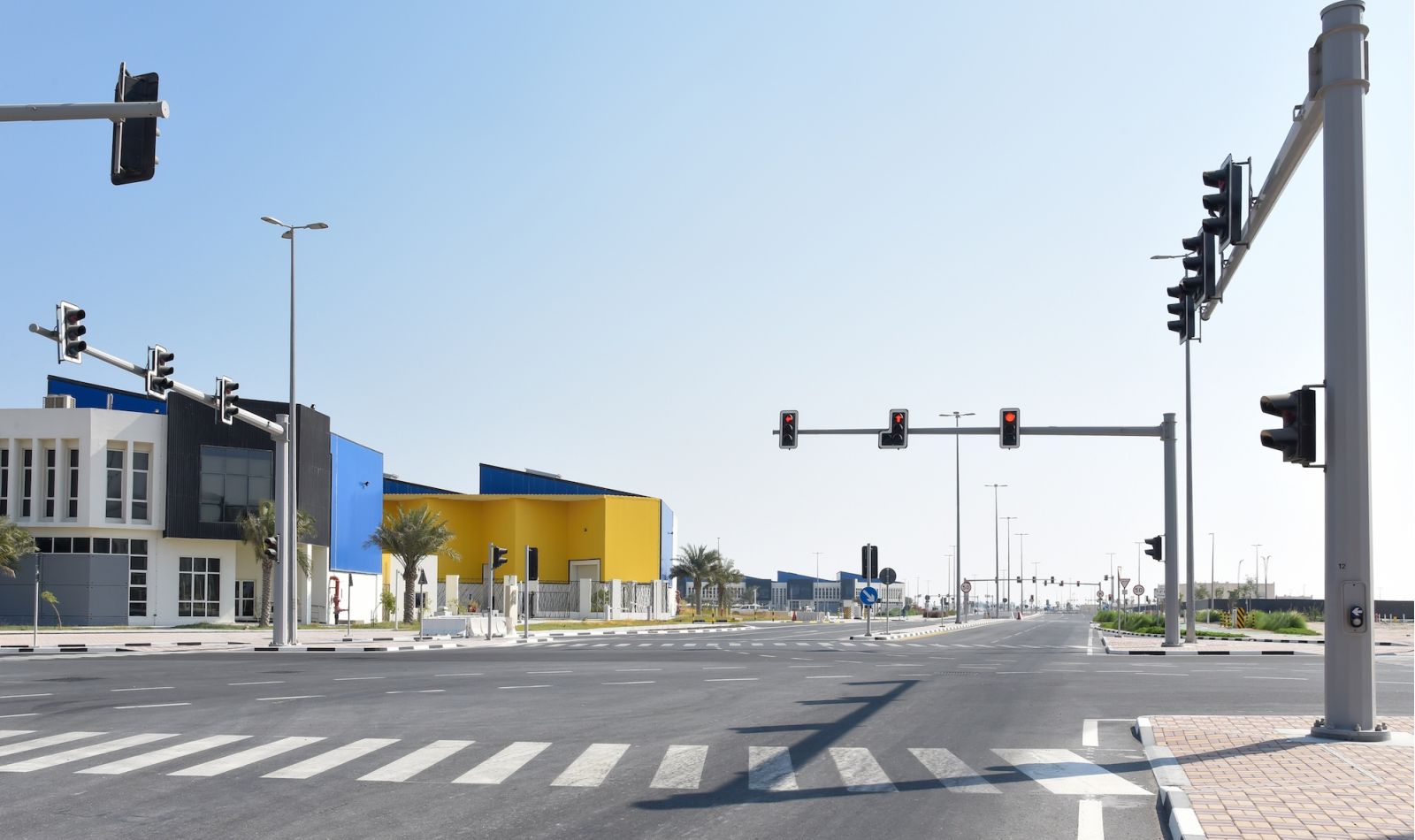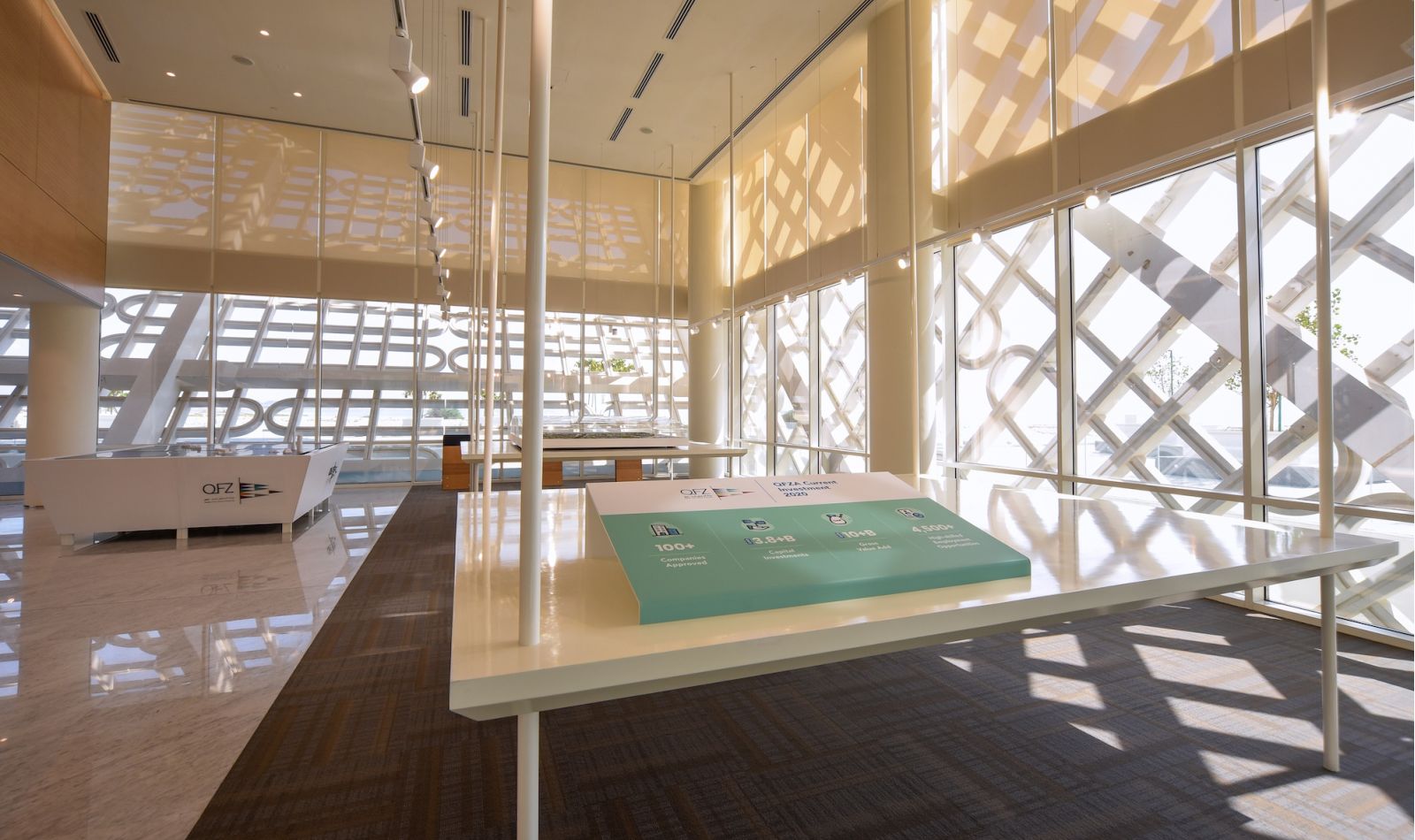اقتصاد معرفي يدعم الابتكار وريادة الأعمال والتكنولوجيا الرقمية

الاقتصاد القائم على المعرفة
يستند الاقتصاد القائم على المعرفة على أربع ركائز رئيسية هي: رأس المال البشري، البنية التحتية الرقمية، البيئة التنظيمية الداعمة، وتوفر عدد كافٍ من حاضنات ومسرعات المشاريع الابتكارية. بذلت دولة قطر جهوداً حثيثة لإرساء تلك الركائز في إطار مساعيها لبناء اقتصاد قوي قادر على دعم المسيرة التنموية لمختلف الصناعات مستقبلاً.


موقع استراتيجي
تقع دولة قطر في قلب منطقة الخليج، وتتمتع بسهولة الوصول إلى العديد من الأسواق الأساسية والحيوية في منطقة الشرق الأوسط. ويمكن لأكثر من 60% من سكان العالم الوصول بسهولة إلى قطر في غضون 8 ساعات طيران و5 أيام إبحار. تربط المناطق الحرة المستثمرين بالأسواق وسلاسل التوريد الأساسية حول العالم من خلال أهم الموانئ القطرية – مطار حمد الدولي وميناء حمد البحري الحائزين على جوائز عالمية.
الابتكار الهادف
تمتلك دولة قطر العديد من حاضنات ومسرعات المشاريع الابتكارية والمجمّعات الصناعية ما يتيح لكبرى شركات التقنية حول العالم تقديم فرص نمو واعدة إلى السوق بفضل خدماتها.
وقد تمكّنت قطر من وضع أسس الابتكار في الدولة من خلال اعتماد مجموعة متنوّعة من المبادرات قيد التنفيذ في المناطق الحرة مثل الشراكة التي تم إبرامها مؤخراً مع واحة قطر للعلوم والتكنولوجيا، وهي مؤسسة تركّز على إتاحة فرص الأبحاث والأعمال للشركات الصغيرة والمتوسطة.
وقامت وزارة المواصلات والاتصالات بتأسيس برنامج قطر الذكية “تسمو”، وهو مبادرة بقيمة 1.6 مليار دولار تم إطلاقها عام 2017 لتحويل الدوحة إلى واحدة من أكثر المدن الذكية حول العالم.


البنية التحتية الرقمية الحديثة
تتطلّب كبرى الشركات التقنية حول العالم تواجد بنية تحتية رقمية تتمتع بأعلى المعايير العالمية، وهذا ما دفع شركات عملاقة مثل جوجل ومايكروسوفت للاستثمار في المناطق الحرة في قطر، تحديداً لأنها تمتلك البنى التحتية الرقمية التي تلبي احتياجات ومتطلبات هذه الشركات، ولأن قطاع تقنية المعلومات والاتصالات متقدم محليا ويدعم نمو هذه الشركات وتطوّرها.
إن سعي دولة قطر إلى نشر تكنولوجيا الجيل الخامس في مختلف أنحاء البلاد منذ البداية، وتصدرها التصنيف العالمي – بعد كوريا الجنوبية – من حيث نطاق التغطية، جعل الدولة وجهة جاذبة للشركات الراغبة في الاستفادة من مزايا هذه التقنية الجديدة التي تمتلك تطبيقات عديدة تتجاوز قطاع التكنولوجيا لتغطي تقريباً كافة القطاعات الأخرى.
رأس المال البشري
تتمتع دولة قطر بوجود شريحة سكانية واسعة من المثقفين وأصحاب الكفاءات بما يمكّن الشركات من توظيف العمالة التي تحتاجها لإنجاز عملياتها التشغيلية. ولهذا فقد انصبّ تركيز دولة قطر على تنمية مهارات وكفاءات مواطنيها وسوق العمالة فيها للدفع بعجلة الثورة الصناعية الرابعة على مستوى منطقة الشرق الأوسط وتحقيق أهدافها.
كما عملت قطر على إبرام شراكات هادفة مع أبرز المؤسسات التعليمية الرائدة حول العالم لإنشاء فروع لها هنا في الدولة لتمسي قطر واحدة من أبرز الدول المساهمة في مجال الأبحاث والتطوير على صعيد المنطقة. وفي عام 2018، بلغ معدل المقالات الأكاديمية المعتمدة والقابلة للاقتباس 1,5 مقالة لكل 1000 شخص، وهو أكثر من ضعف المعدل المسجّل في أي دولة أخرى من دول مجلس التعاون الخليجي.
وتحرص قطر كذلك على استقطاب أفضل المواهب وأصحاب الكفاءات من كافة أنحاء العالم، وللقيام بذلك لا تكتفي الدولة بتوفير فرص مهنية واعدة ومردود مادي مرتفع فحسب، بل تدعم ذلك أيضاً بأسلوب معيشة كريم وعالي الجودة، إذ تعدّ العاصمة الدوحة مدينة عالمية بكافة المقاييس، إذ تتيح جميع المقومات لبدء حياة رغيدة فيها. وقد حلّت دولة قطر في المرتبة الـ 18 ضمن استطلاع رأي المقيمين الصادر عن “إنتر نيشنز” من حيث أفضل الدول وفق مقياس معيشة المقيمين، وتشهد هذه المرتبة تقدماً متسارعاً وملحوظاً، حيث ارتقت الدولة 20 مرتبة في العام 2019 و42 مرتبة منذ العام 2016، في سجل قياسي لم تحقّقه أية دولة أخرى حول العالم.


بيئة تنظيمية داعمة
عملت هيئة المناطق الحرة بشكل وثيق مع الحكومة القطرية بهدف وضع قوانين تنظيمية ميسرة ومسهّلة لا تكون عقبة في وجه الشركات الراغبة بدخول المناطق الحرة، وبما يخوّل الشركات والقطاعات المختلفة تأسيس أعمالهم وتحقيق التوسعات والنجاحات المنشودة.
وإلى جانب كافة المزايا التي تقدمها المناطق الحرة حول العالم، مثل ميزة التملّك الأجنبي بنسبة 100% والحوافز الضريبية التنافسية، تعمل الهيئة كحلقة ربط تجمع بين الحكومة والمستثمرين بما يضمن توفير البيئة التنظيمية اللازمة لدعم مسيرة الشركات نحو تحقيق الازدهار والتطوّر.
عمل الفريق التنظيمي لدى الهيئة جنباً إلى جنب مع الفريق التابع لمنصة جوجل السحابية لضمان توافق القوانين الخاصة بحماية البيانات وبروتوكولات الإنترنت مع أفضل الممارسات المعتمدة دولياً، بما يتيح لمنصة جوجل تأسيس أعمالها في المناطق الحرة. وبغض النظر عن متطلبات كل شركة، تسعى الهيئة لأن يكون إطار العمل التنظيمي المعتمد في المناطق الحرة مرناً ليواكب كافة احتياجات المستثمرين ويمكنهم من الاستفادة من المزايا الاستثنائية المتوفّرة في المناطق الحرة في قطر.